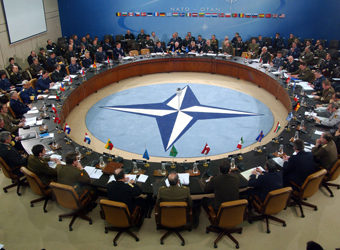Russia On Thursday began major joint military exercises with Belarus along the European Union’s eastern flank, a show of strength that has rattled nervous NATO members.
Named Zapad-2017 (West-2017), the manoeuvres, scheduled to last until September 20, are taking place on the territory of Moscow’s closest ally Belarus, in Russia’s European exclave of Kaliningrad and in its frontier Pskov and Leningrad regions.
Moscow says the drills will involve 12,700 troops, 70 aircraft, 250 tanks and 10 battleships testing their firepower against an imaginary foe close to borders with Poland and the Baltic States.
In a statement announcing the start of the exercises Russia’s defence ministry insisted the manoeuvres are “of a strictly defensive nature and are not directed against any other state or group of countries.”
But NATO claims Russia has kept it in the dark and seems to be massively underreporting the scale of the exercises, which some of the alliance’s eastern members insist could see more than 100,000 servicemen take part.  The war games come with tensions between Russia and NATO at their highest since the Cold War due to the Kremlin’s meddling in Ukraine and the US-led alliance bolstering its forces in eastern Europe.
The war games come with tensions between Russia and NATO at their highest since the Cold War due to the Kremlin’s meddling in Ukraine and the US-led alliance bolstering its forces in eastern Europe.
Moscow has dismissed fears over the drills, the latest in a series of annual exercises that rotate around the vast country, as fuelled by the “myth about the so-called ‘Russian threat'”.
But for NATO allies, especially jittery members such as Poland and the Baltic States which only broke free from Moscow’s grip 25 years ago, such reassurances have not dampened suspicion.
“This is designed to provoke us, it’s designed to test our defences and that is why we have to be strong,” Britain’s Defence Secretary Michael Fallon told the BBC last week. “Russia is testing us and testing us now at every opportunity. We see a more aggressive Russia, we have to deal with that.” Moscow has held a stream of exercises since ties with the West plunged in 2014 over Ukraine, with the military claiming some drills included nearly 100,000 troops.
Minsk has said the games will role play a conflict with a made-up rebel region backed by neighbouring European nations. Russia says they will simulate assaults by “extremist groups” trying to carry out “terrorist attacks”.
Russian military expert Alexander Golts told AFP that Moscow “very skillfully manipulates the figures for such drills because it does not want to have to invite foreign observers”. “Russia at every drill is working on one and the same scenario — how to deploy troops quickly,” he said.
The Kremlin has vigorously defended its right to hold exercises and has long blamed the United States for ratcheting up tensions by expanding NATO up to its borders and holding its own provocative drills.
The Russian war games come as Ukraine on Monday launched annual joint military exercises with the US and a host of other NATO countries.
Meanwhile non-aligned Sweden has mobilised 19,000 soldiers for its biggest drills in 20 years which also include units from across Scandinavia and the US.
Source: AFP


